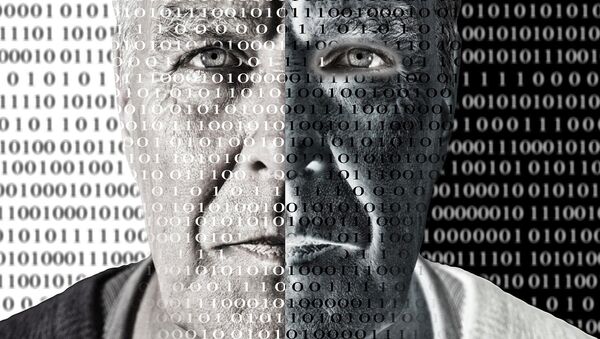The AI algorithm, the name of which can be translated as either Dragon Eye or Dragonfly Eye, was developed by Shanghai-based tech firm Yitu. It works off of China's national database, which consists of all 1.3 billion residents of the Asian nation as well as 500 million more people who have entered the country at some point.
Dragon Eye interfaces with the database to detect the faces of individuals. Yitu chief executive and co-founder Zhu Long told the South China Morning Post (SCMP) that the purpose of the algorithm is to fight crime and make the world a safer place.
"Let's say that we live in Shanghai, a city of 24 million people. It's challenging for the government to police such a large population. And it would be impossible without technology. Even when we have many cameras installed, it's a hard task. You can't watch all the videos, and doing a search is very time-consuming and requires too many resources to get meaningful results from such a huge amount of data," Long said.
"But artificial intelligence can do it easily, and by using existing infrastructure."
Dragon Eye was installed in the Shanghai Metro in January 2017 for a trial run. Over the next three months, its facial recognition was used to catch 567 suspected criminals entering the city's metro system by flagging their faces in the sprawling database.
Long added that 20 provincial and 150 municipal police forces have also started using the technology, and in every place that it has been installed there has been a drop in the crime rate.
"Our algorithm is more accurate than customs officials at telling whether two images show the same person. It can even find a subject among millions of others using a 25- or 30-year-old image. And in the past two years, the performance of machines has increased by 1,000 times," boasted Long. "Our machines can very easily recognize you among at least 2 billion people in a matter of seconds, which would have been unbelievable just three years ago."
But human rights and privacy advocates are less enthused about Dragon Eye and similar technologies, arguing that they could be used by totalitarian governments to crack down on dissent and thinking not approved by the state.
Human Rights Watch's (HRW) China branch slammed Dragon Eye, calling it a surveillance program "designed to track and predict the activities of activists, dissidents and ethnic minorities, including those authorities say have extreme thoughts, among others."
HRW China Director Sophie Richardson told SCMP, "Chinese authorities are collecting and centralizing ever more information about hundreds of millions of ordinary people, identifying persons who deviate from what they determine to be 'normal thought' and then surveilling them."
But while privacy is often a major sticking point in the West, some in China have pointed to cultural differences. "I think that in people's lives there are issues of safety and issues of privacy, I think that when these two things come into conflict, Chinese people perhaps care more about safety," said Wang Shengjin, professor at Tsinghua University's Department of Electronic Engineering and expert in facial recognition, to Global News.
Surveillance is big business in the People's Republic, a market to the tune of $6.4 billion with 12 percent growth a year. Research firm IHS Market reported that China currently has 176 million cameras nationwide, with an expected 626 million by 2020 — or nearly one for every two citizens.
Beijing is often accused of repressing dissenters and violating free speech rights, but they're far from the only country looking into facial recognition surveillance. In August, Germany announced that they would be testing a biometric recognition technology for the Berlin subway system.
And despite the rapid growth of China's surveillance market, the most monitored nation in the world remains the United Kingdom — a nation that possesses 20 percent of the world's surveillance cameras despite accounting for less than 1 percent of the world's population.






